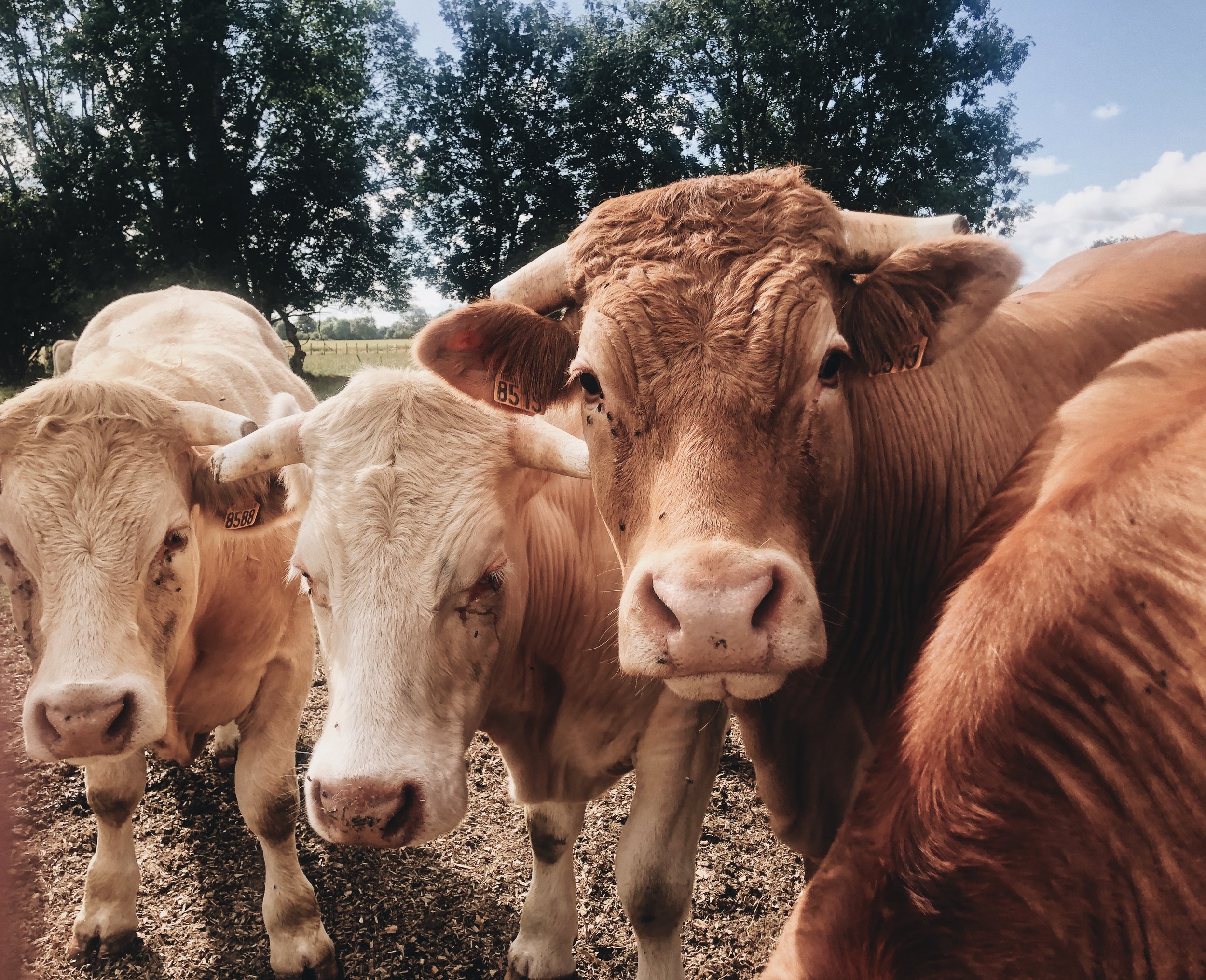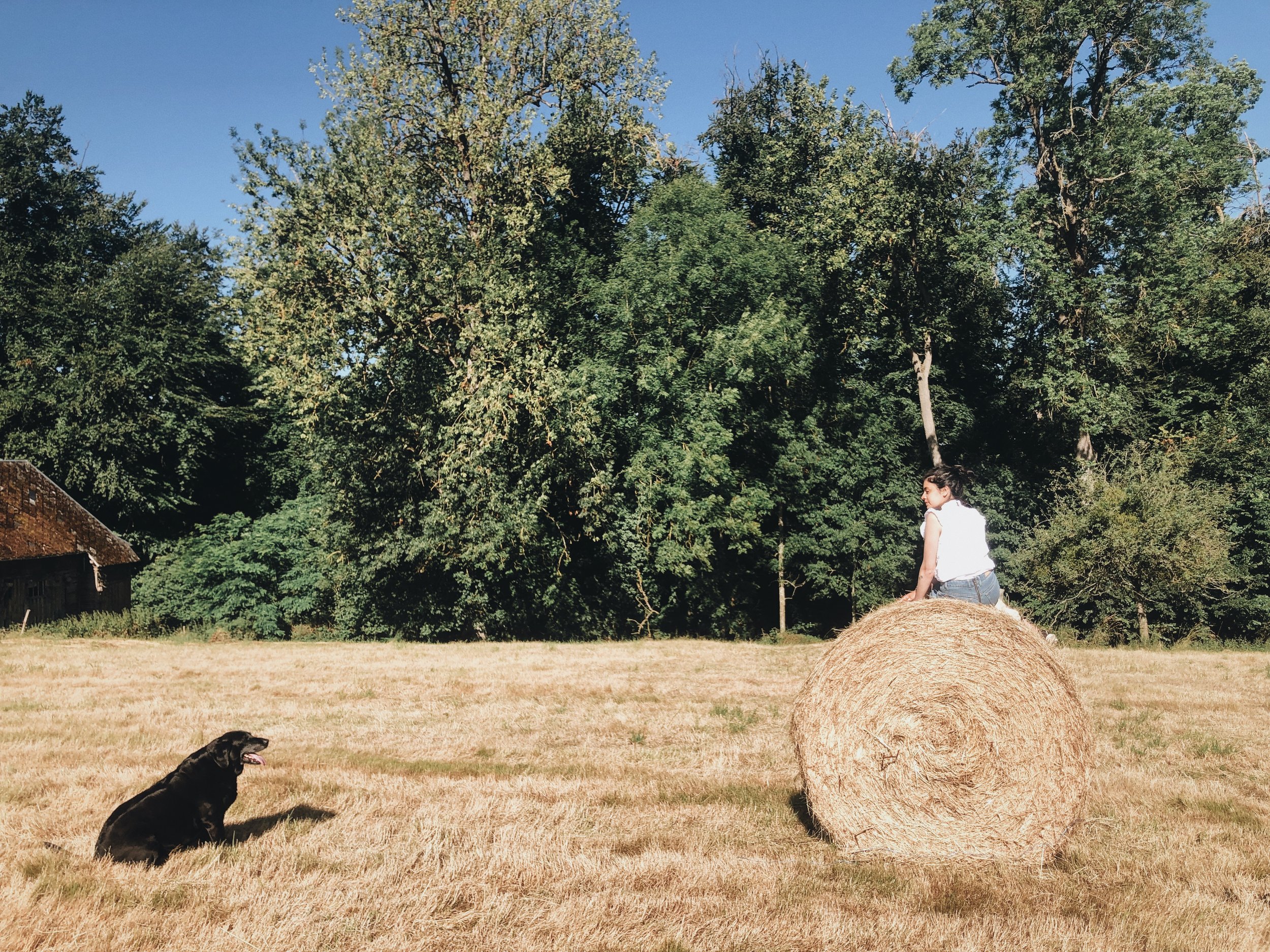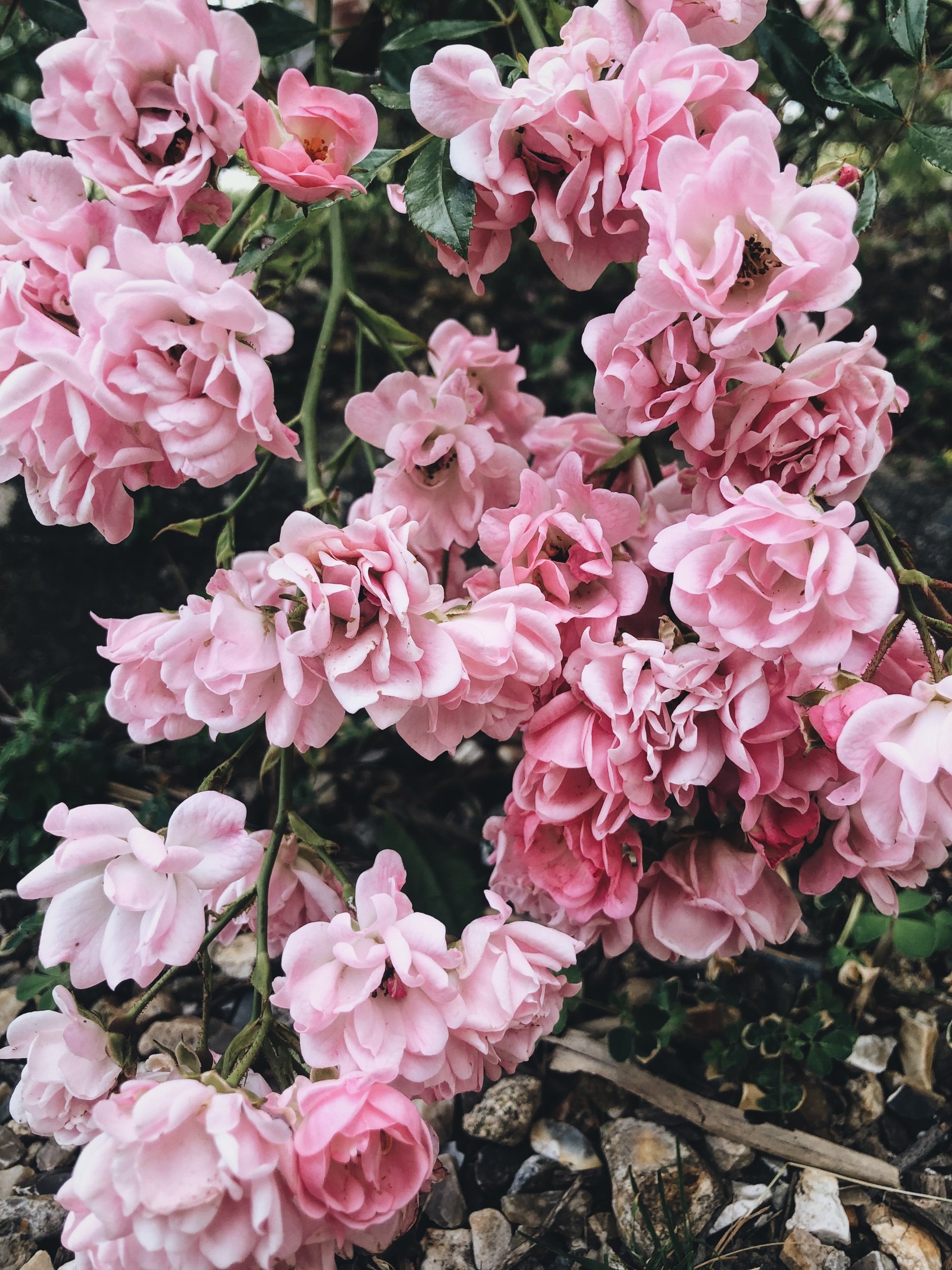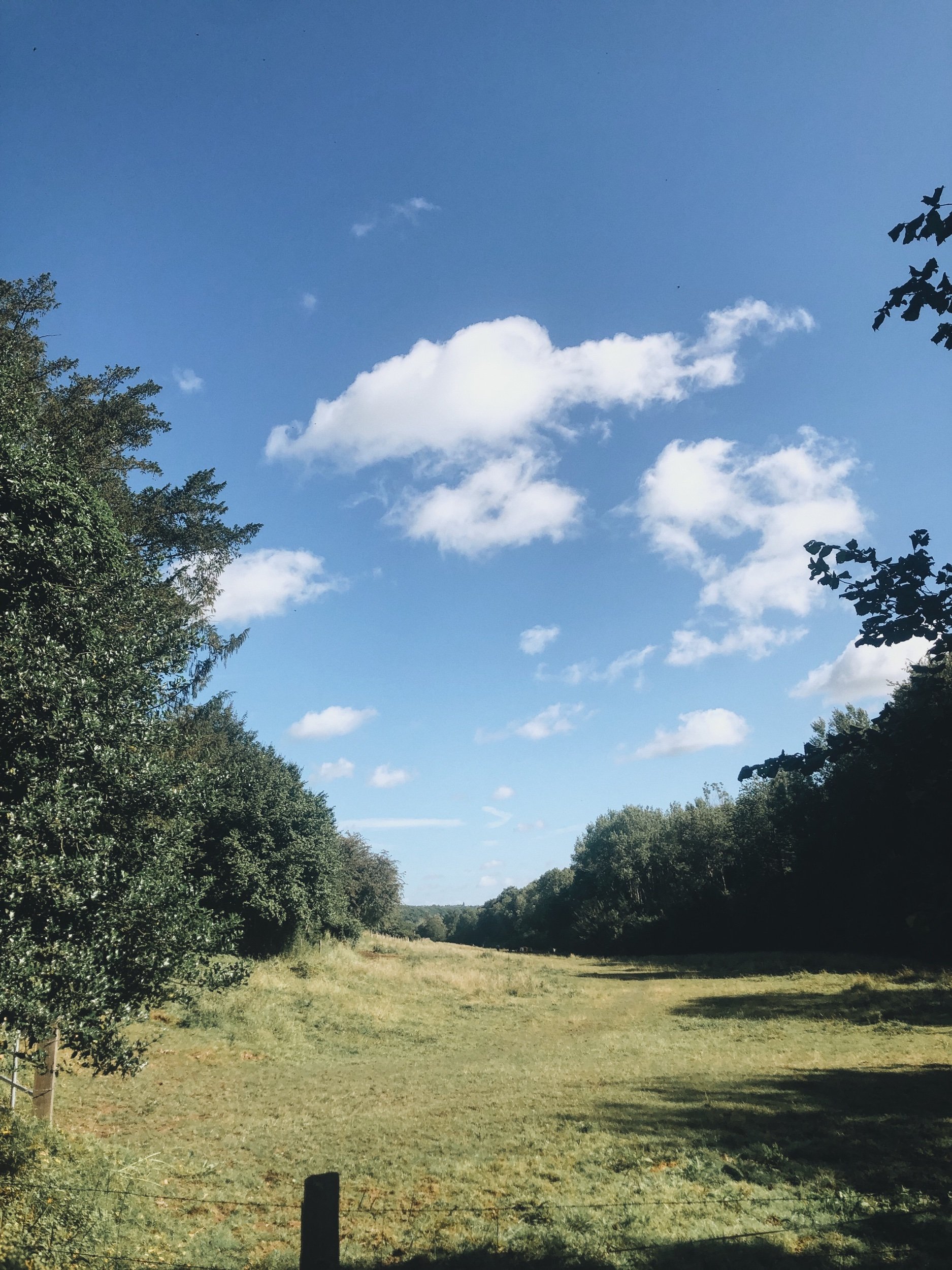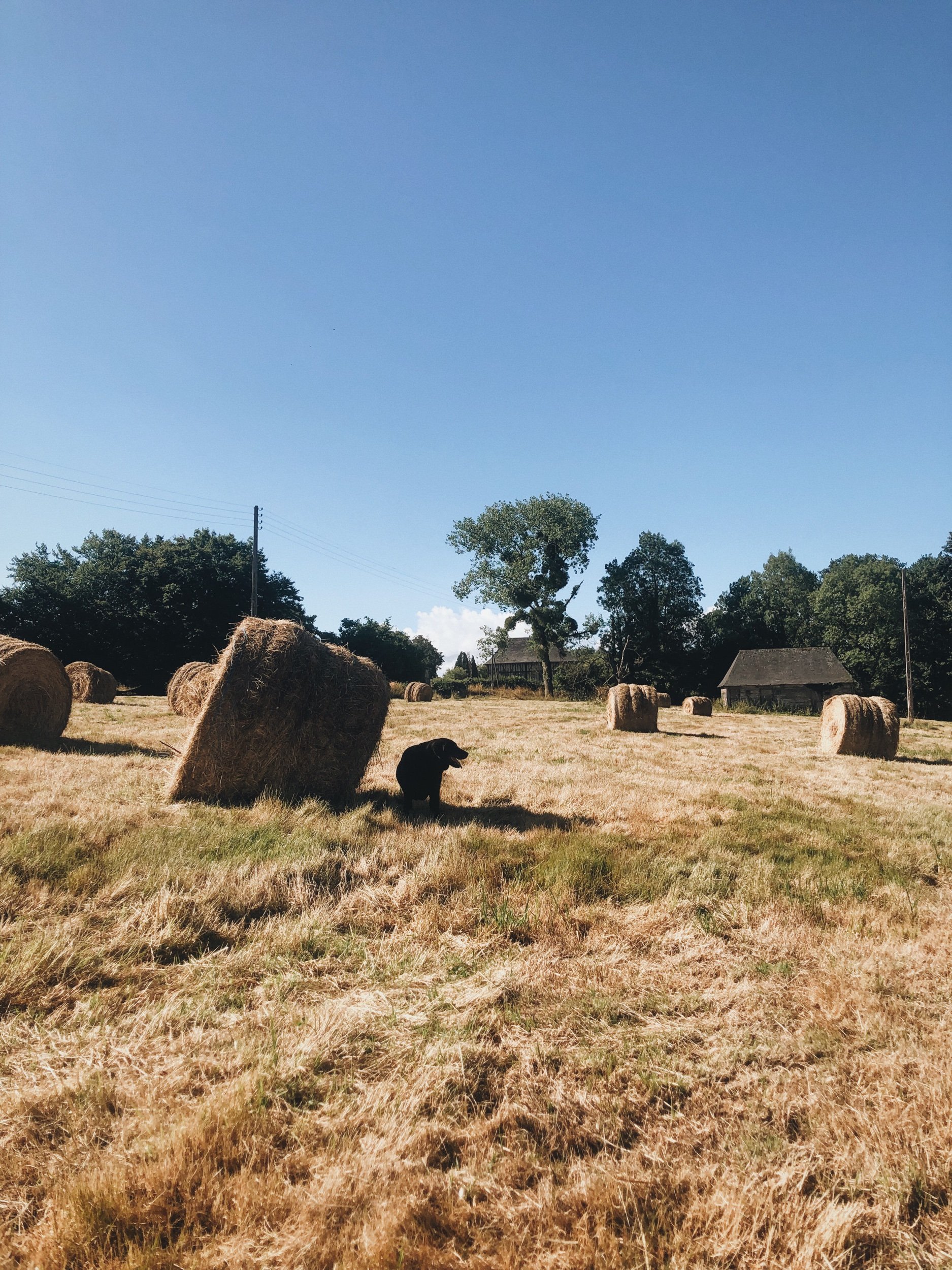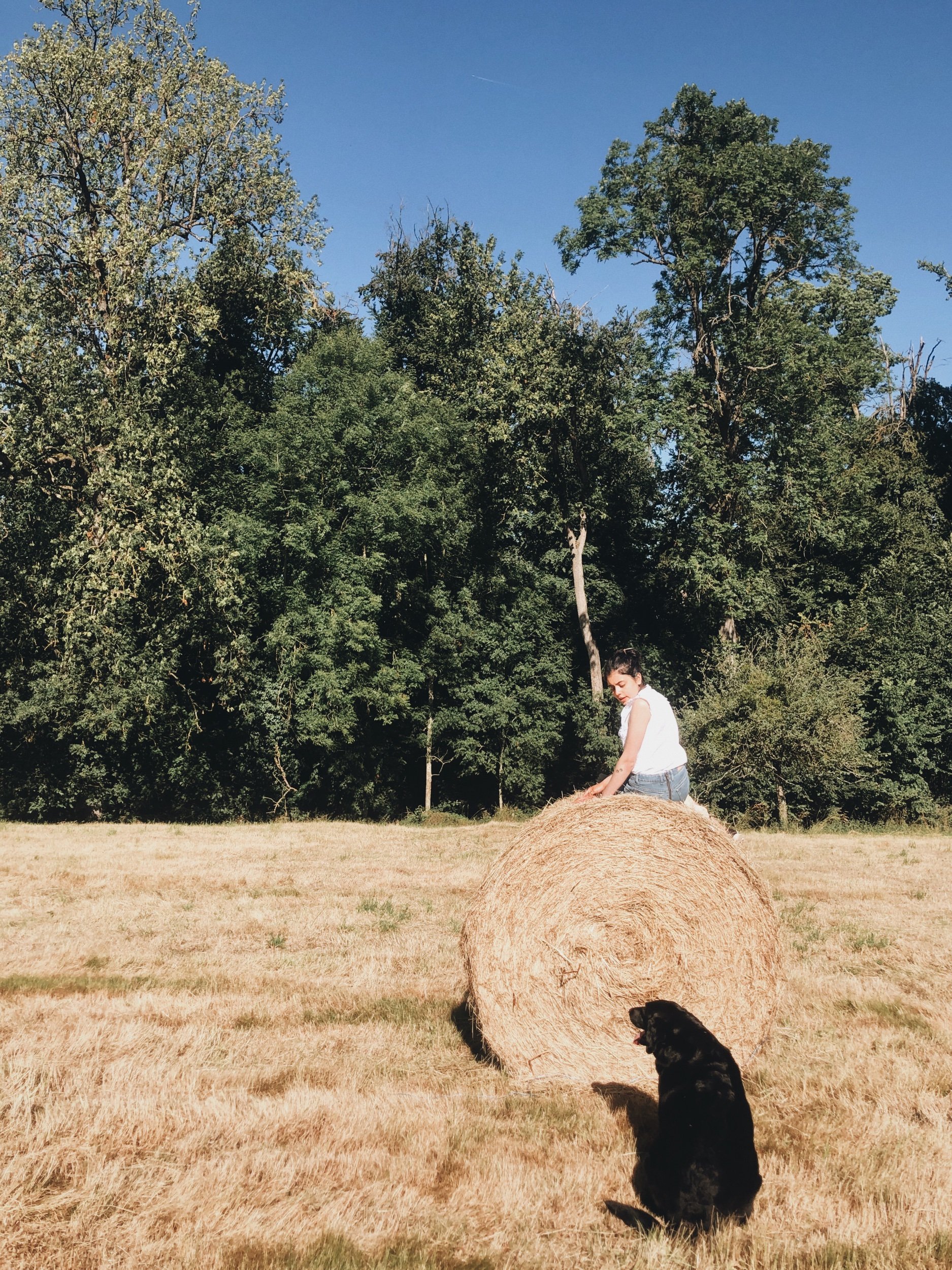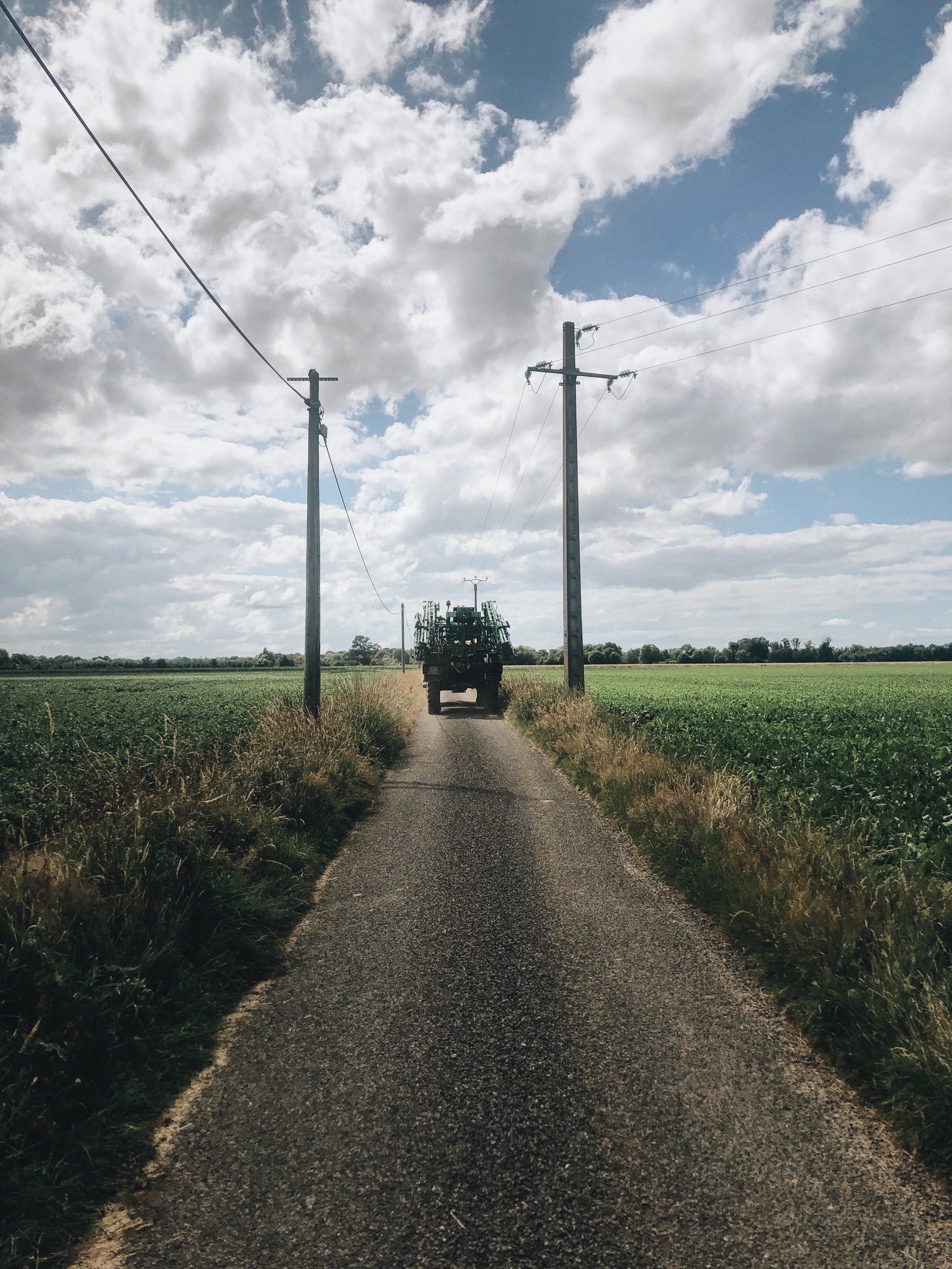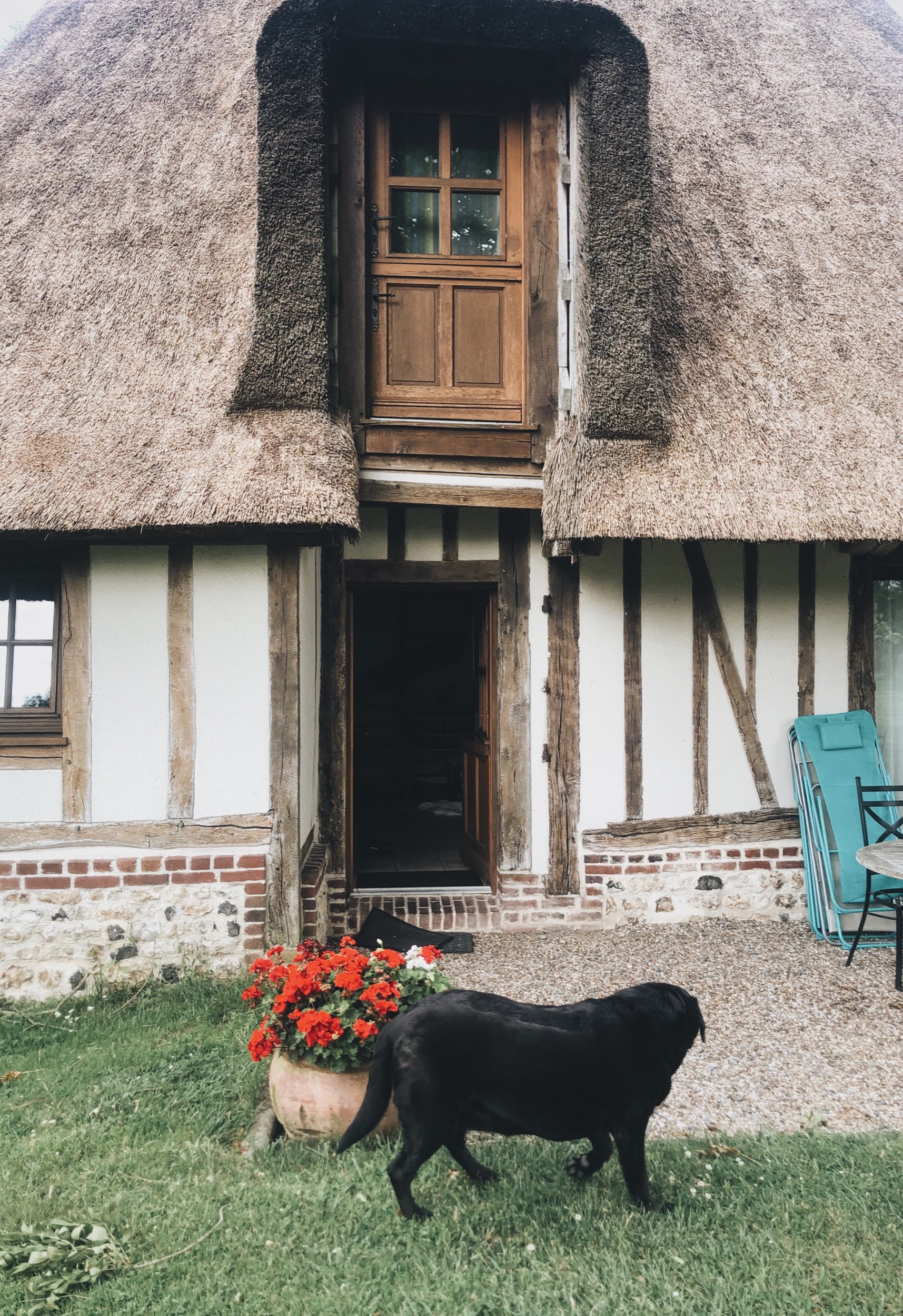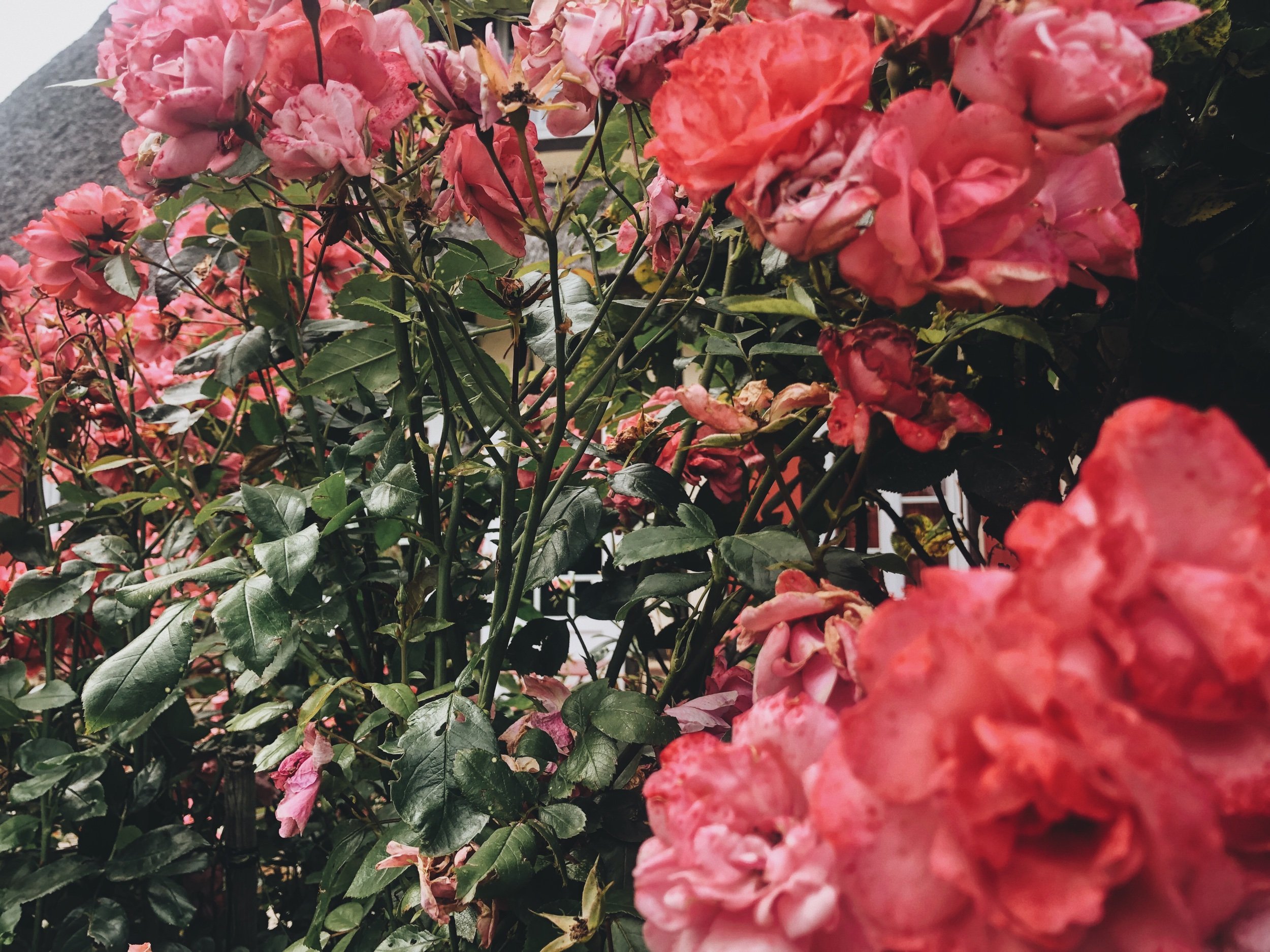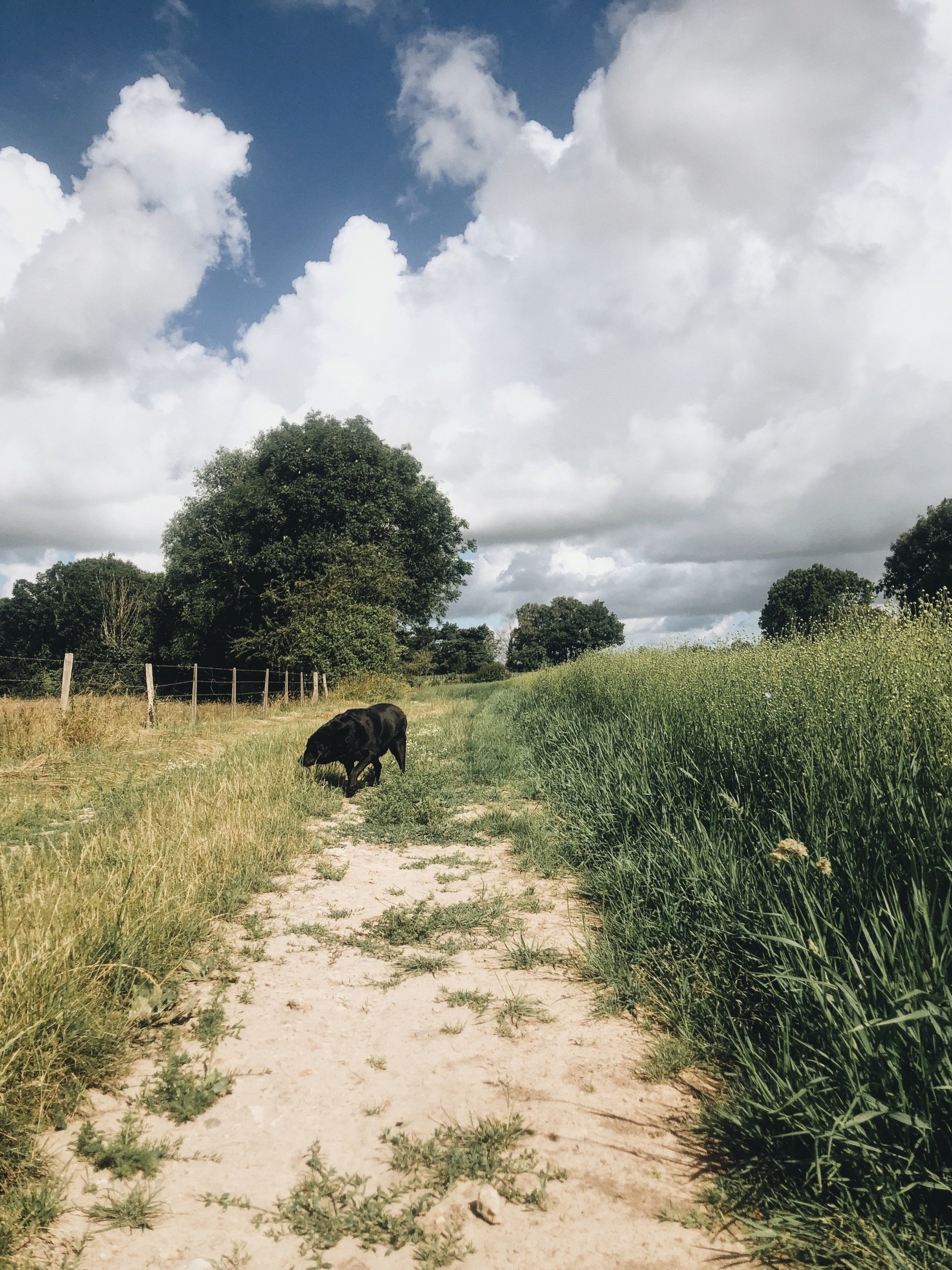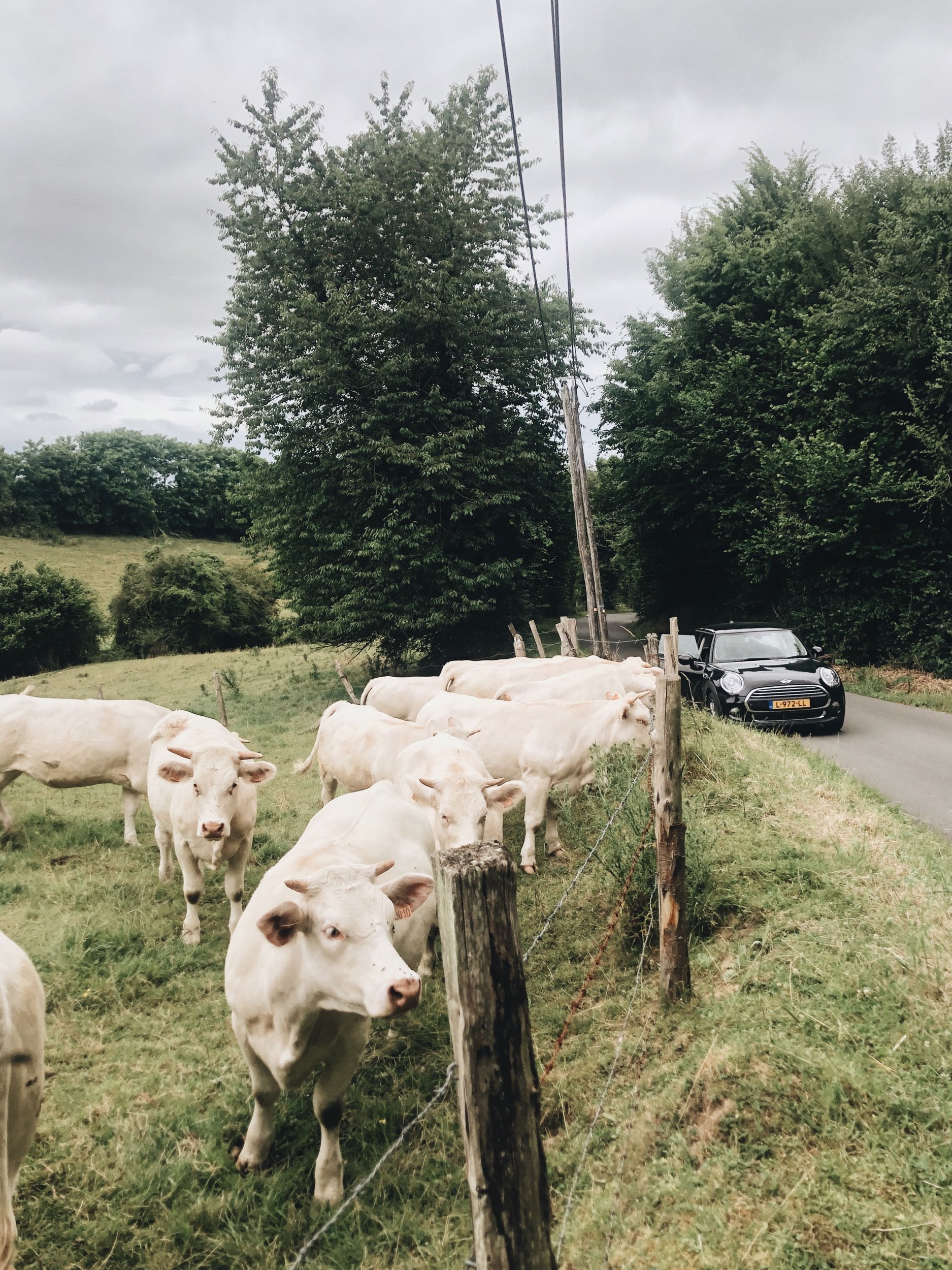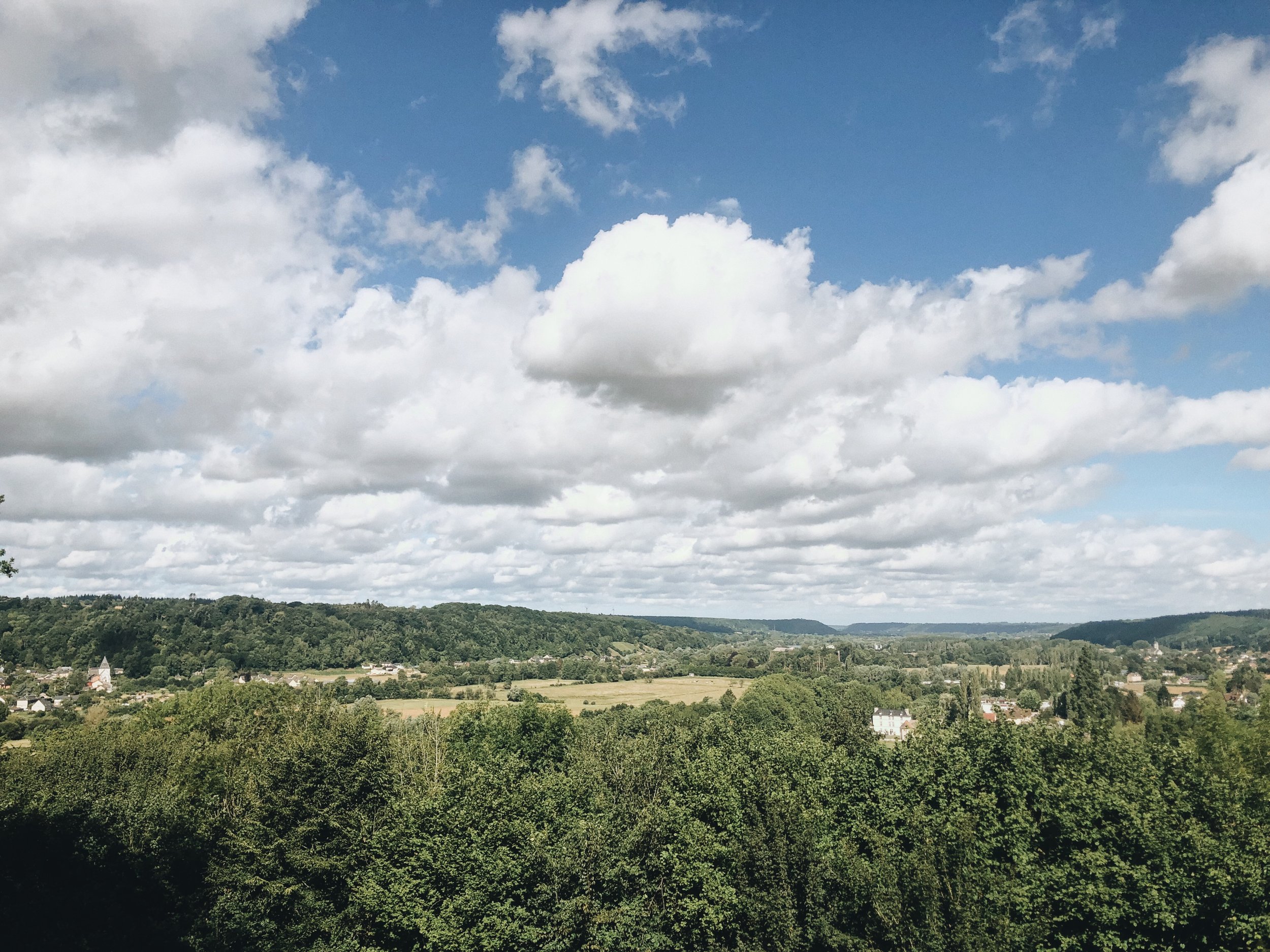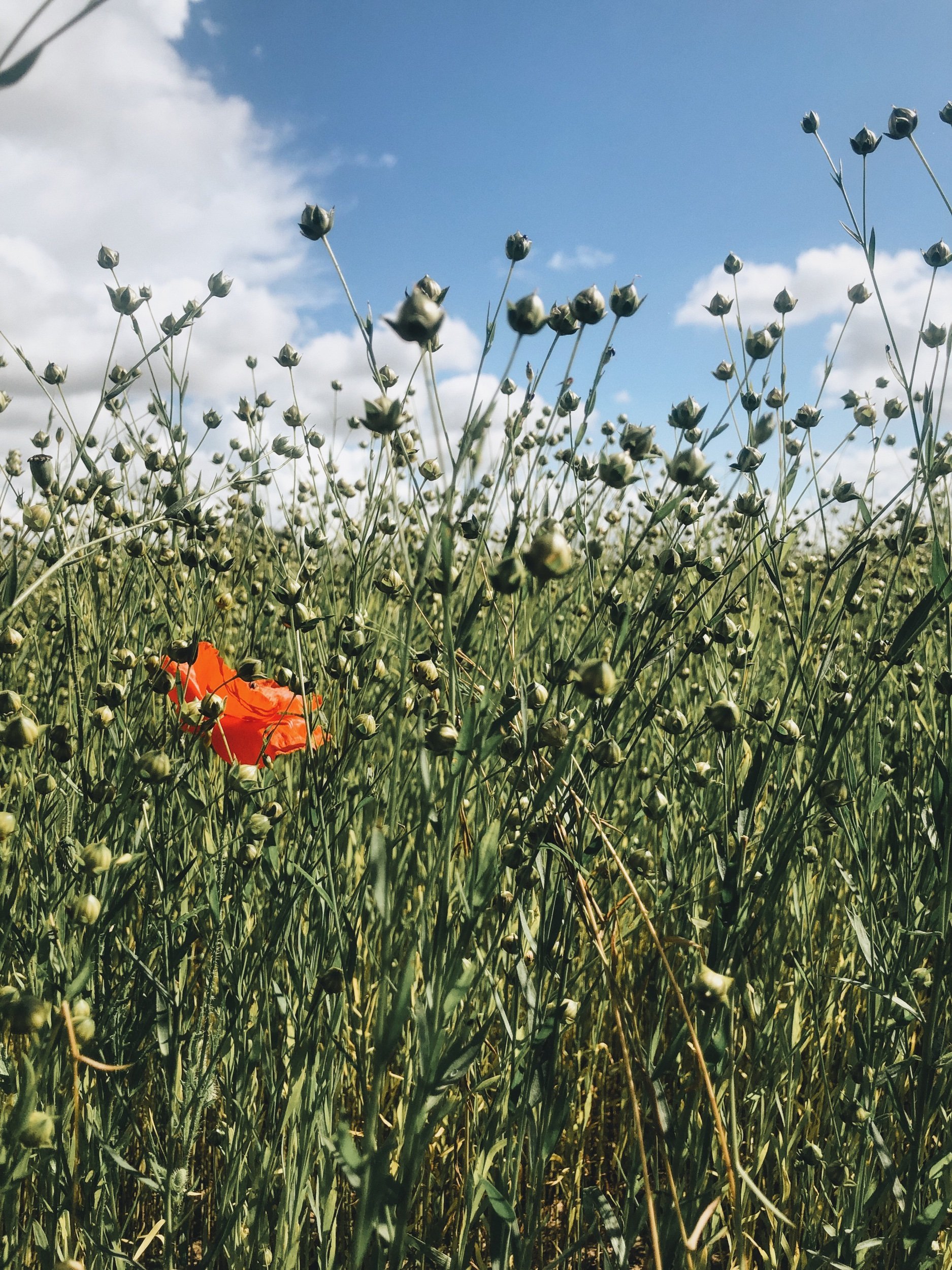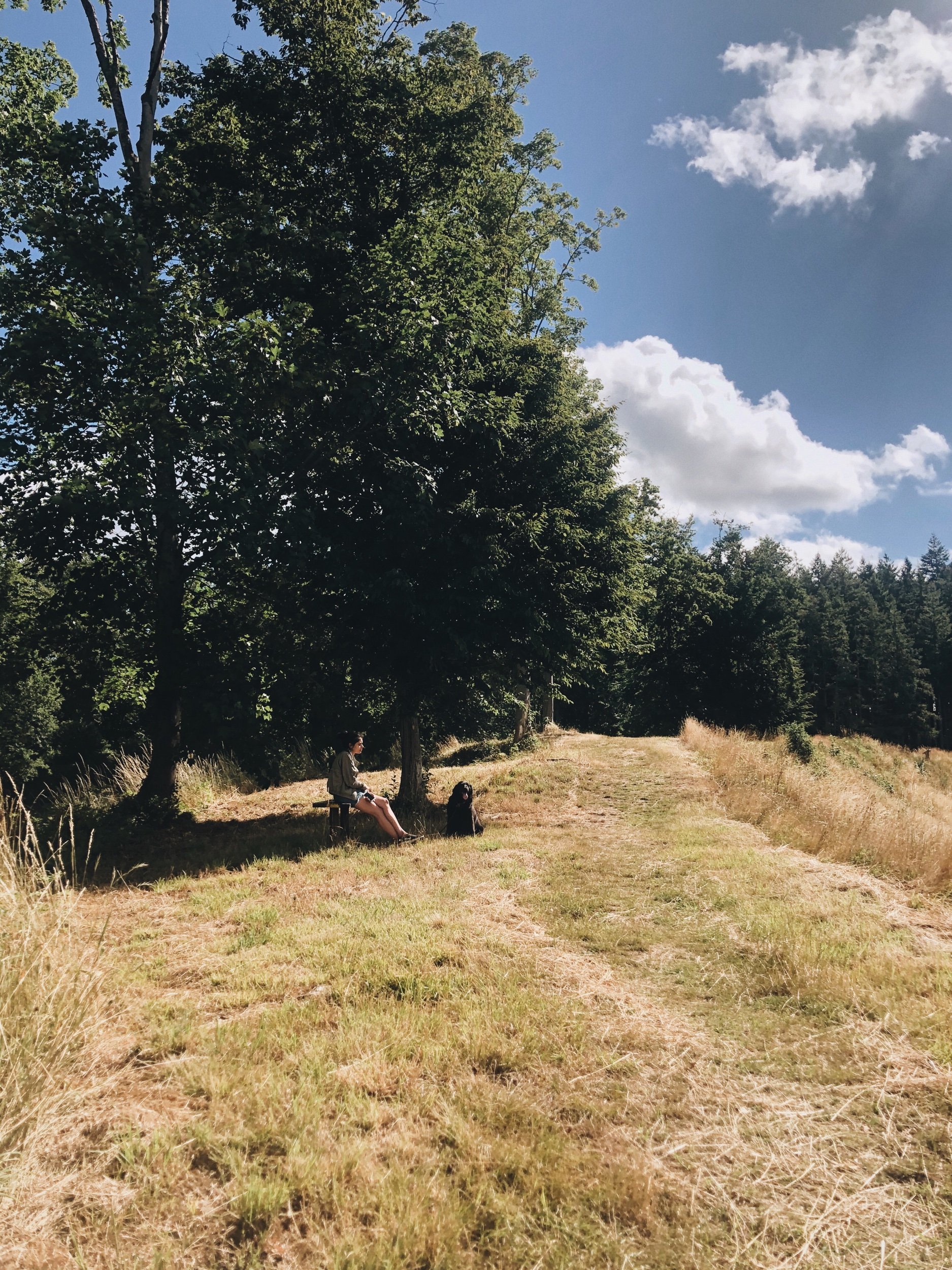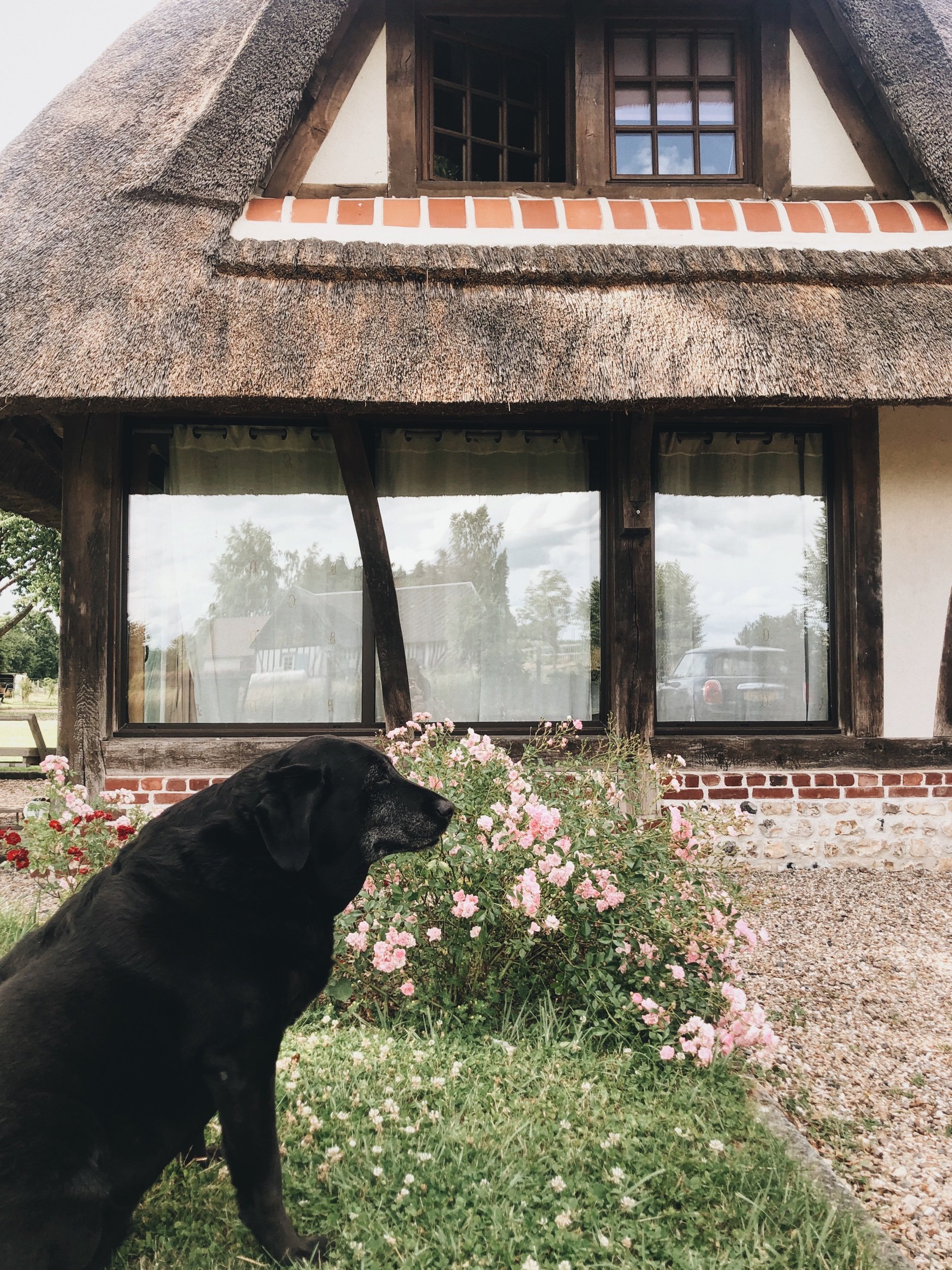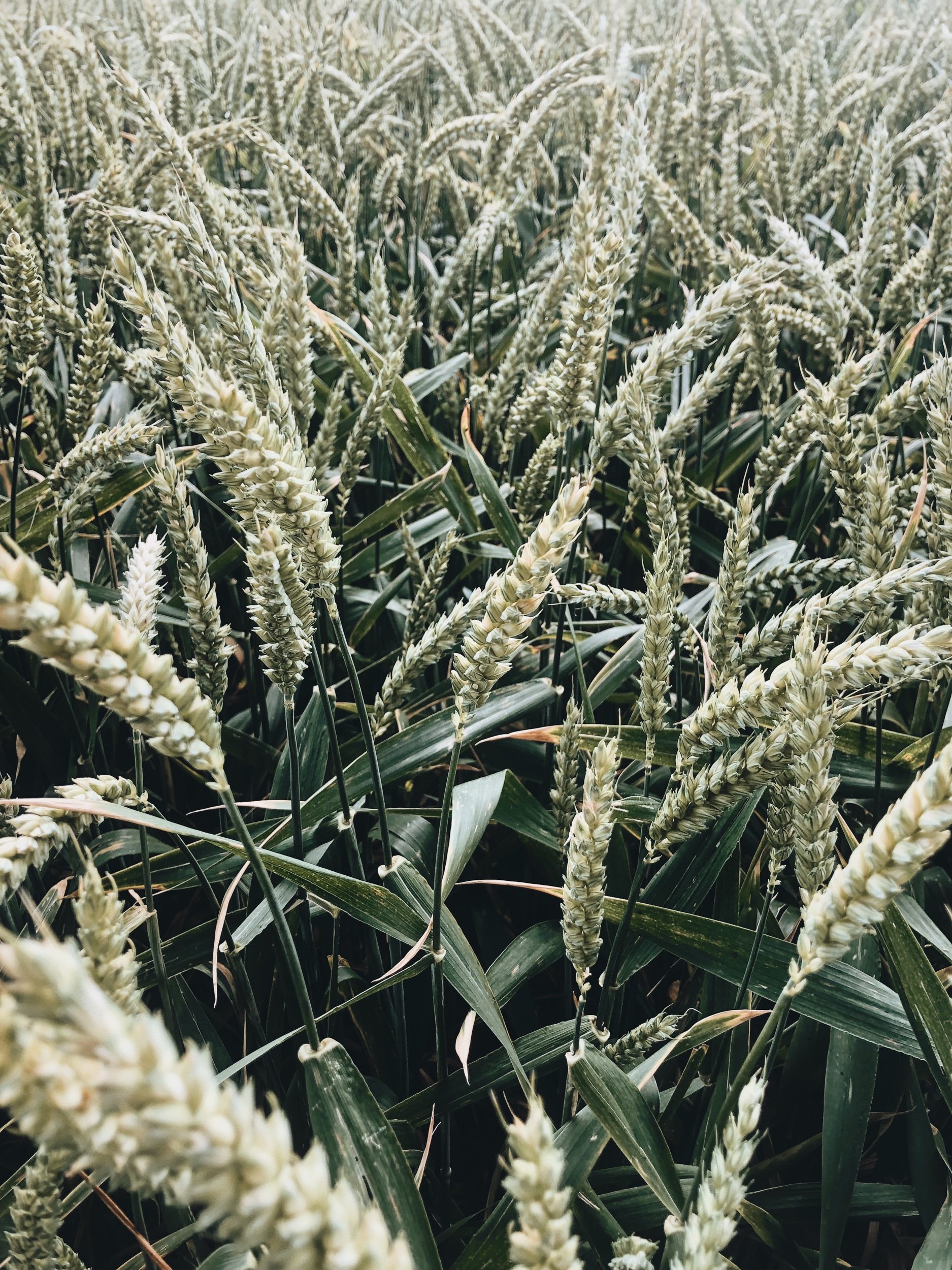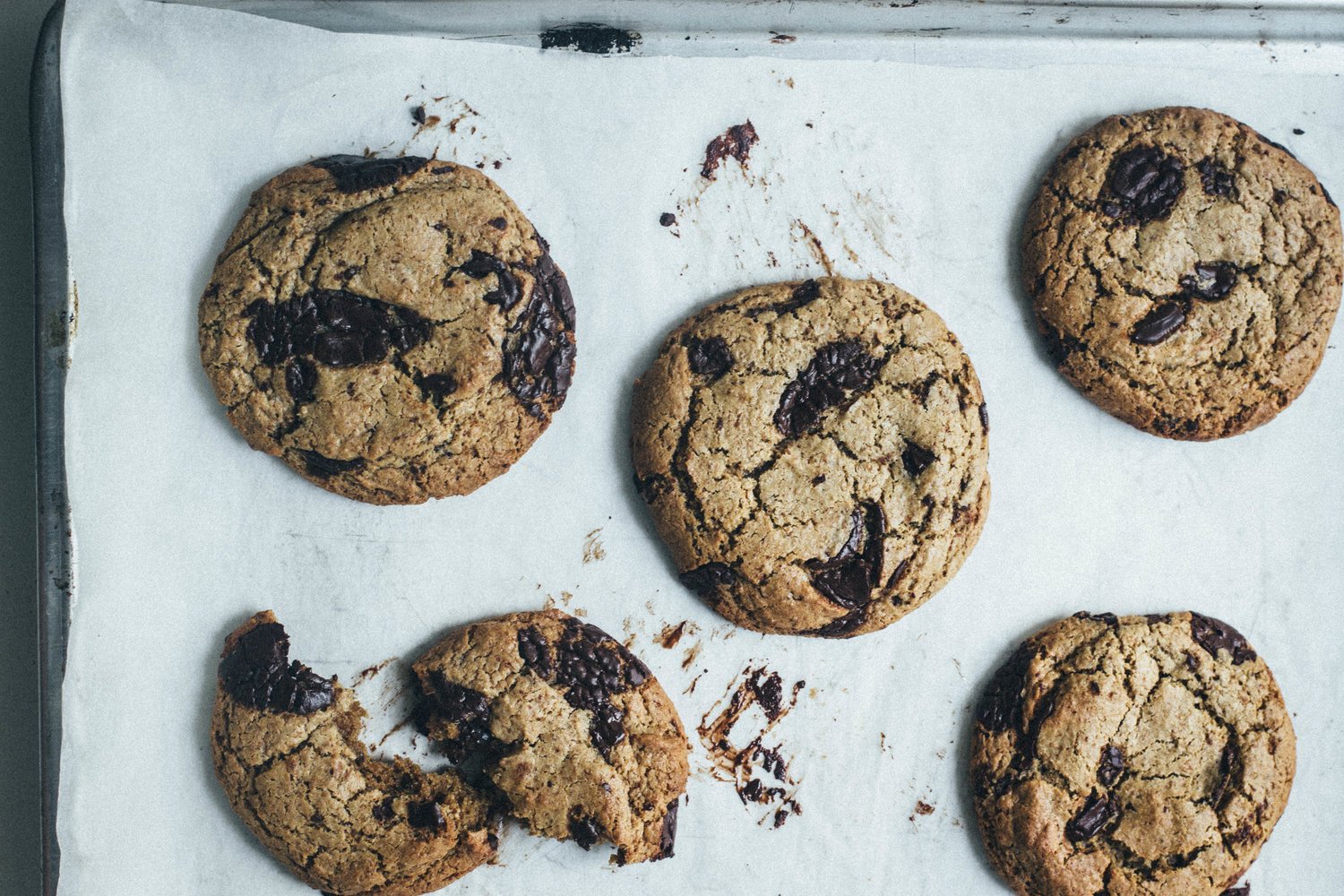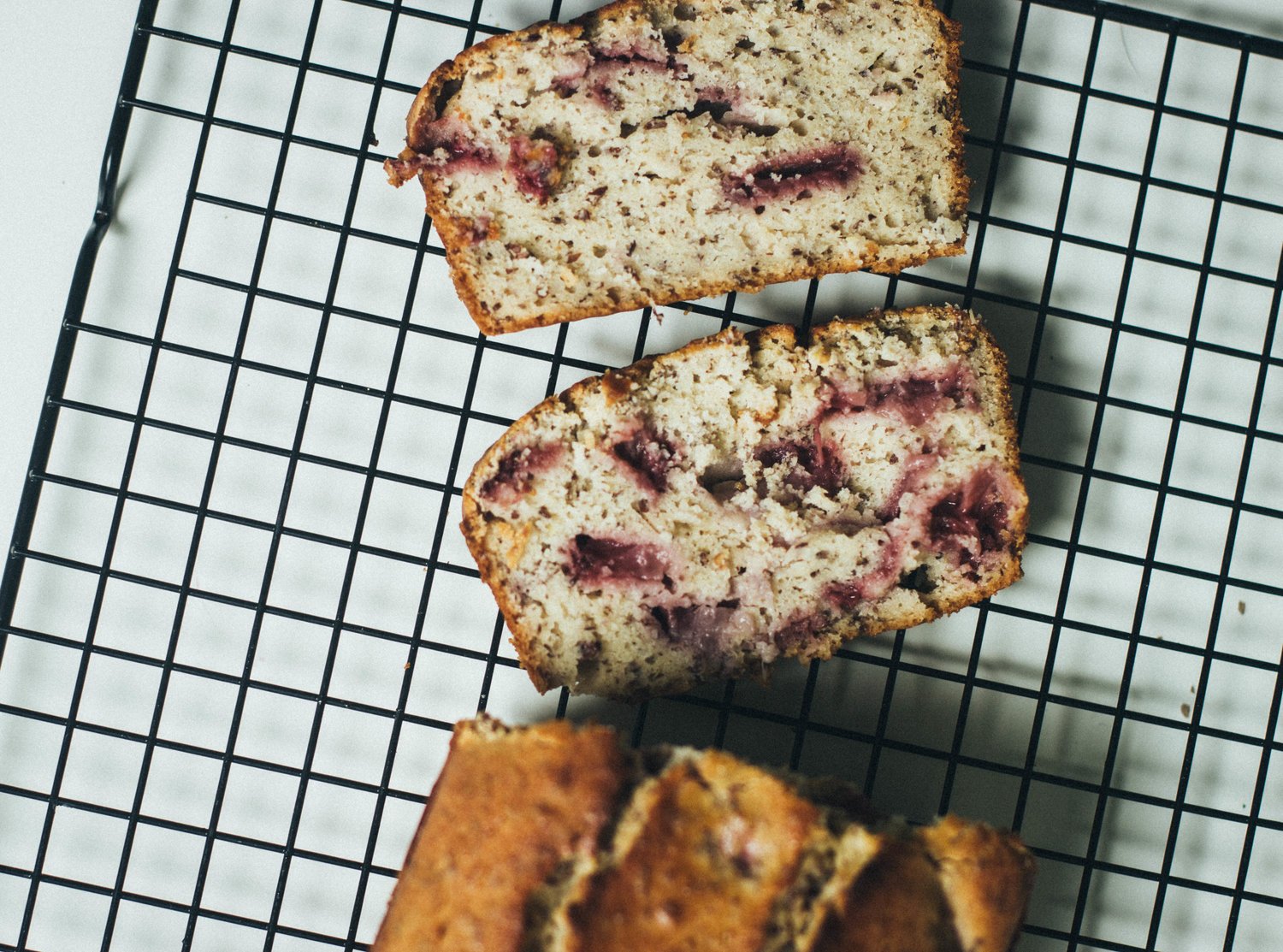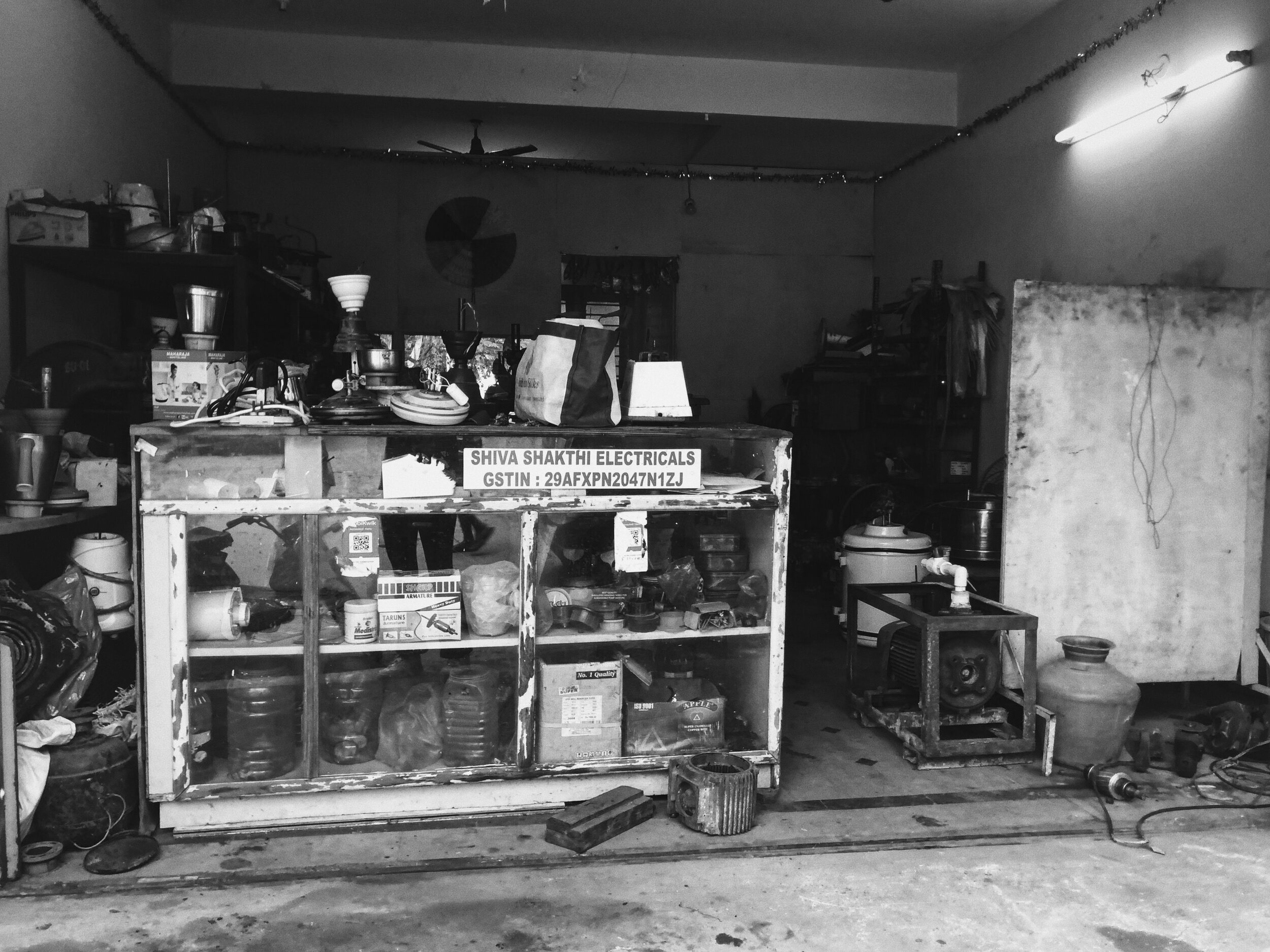drowning in a fragrant sea | Upper Normandy
/For us it had so far been a typically humid lakeside early summer. Maybe there is supposed to be some kind of romance in the dense stagnant air; crowds magnetically drawn to the lake; the quiet of the night overridden by the whirring of fans, the countryside bursting at the seams with caravans and families on bicycles. Whatever there was, it was gone, like the birds who nest in the quiet marshes over the winter. Summer just set in too hard and too fast. It’s always the times when you don’t expect much that you find a part of you are looking for, even if you’re not exactly sure what that is, kind of like what people say about love. Nobody would have expected that you could drive four hours south and that the air would clear. In Normandy, mornings were so cool that crystalline layers of dew settled over the wheat fields, some fields still green with youth, some a warm flaxen gold and waiting for the first harvest. The sun would rise gentle and mellow, tinting the countryside with peach and bubblegum pink as dew dripped off the flowers clinging to farmhouse walls. We were close enough to the Landing Beaches that we could feel a coastal breeze wafting over pastures, tiny birds resting on the winds, towering benign cumulus clouds flitting across baby blue skies. Roads were so small that wheat seeds came through open windows and we were almost swallowed by meadows where cows grazed on shaded slopes. The delicate network of roads wound through flourishing villages drowning in a fragrant sea of flowers and timbered farmhouses. We parked at a crossroads and walked through fields basking in the gentle sun. Suzi sniffed between maturing stalks of corn and young pockets of blooming wildflowers, rambling, wandering. Baby cows met us by rusting iron fences, noses wet from dew as they nibbled our clothes, clearly curious of the early visitors. Red, blue, yellow, tractors hauled the first of the hay, sending stalks flying like confetti, a celebration of us being, for once, in the right place at the right time.
Mild rain showers cooled the evenings even more, fat drops pooling under the thatched roof. The evening air was suddenly encumbered by scents of freshly cut grass, the earth breathing through the rain, a marriage to the sweet sticky smell of molasses in the feed of the dairy cows next door. It was both floaty and lulling, lingering light in the sky tracing the clouds through the shadows. From the newly damp earth we tracked in shards of freshly cut grass, they stuck to the soles of our shoes and trailed lines of emerald into the house. Some days the afternoons were so mild you could nap in the sun, all dreams of poppies and molasses, and wake up sun-burnt. But even on the hotter days, it was the kind of southern dry heat that feels like a golden reward and not like a burden. The sky ran through a gambit of Pantone blues, washed like denim, and hay bales puffed like popcorn in the lee of chateaux.
Maybe the heat would build, and the landscape would turn deep yellow and burnt khaki. Maybe it wouldn’t. We left Normandy with mornings that were still cool and foggy, sunlight illuminating cobwebs, birds floating on brisk breezes carrying the seeds of dandelions like whispers. It would be how we would remember those early days of French summer - the baby cows and their molasses, Suzi and her fields of young corn, the forests’ eternal romance with birdsong. And the sun, endlessly flirting with the June clouds, her lover.

